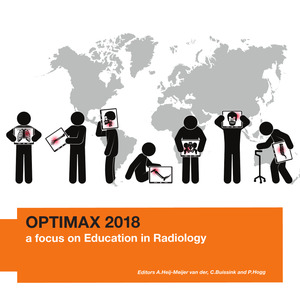Background: Magnetic resonance imaging (MRI) is being used extensively in the search for pathoanatomical factors contributing to low back pain (LBP) such as Modic changes (MC). However, it remains unclear whether clinical findings can identify patients with MC. The purpose of this explorative study was to assess the predictive value of six clinical tests and three questionnaires commonly used with patients with low-back pain (LBP) on the presence of Modic changes (MC).Methods: A retrospective cohort study was performed using data from Dutch military personnel in the period between April 2013 and July 2016. Questionnaires included the Roland Morris Disability Questionnaire, Numeric Pain Rating Scale, and Pain Self-Efficacy Questionnaire. The clinical examination included (i) range of motion, (ii) presence of pain during flexion and extension, (iii) Prone Instability Test, and (iv) straight leg raise. Backward stepwise regression was used to estimate predictive value for the presence of MC and the type of MC. The exploration of clinical tests was performed by univariable logistic regression models.Results: Two hundred eighty-six patients were allocated for the study, and 112 cases with medical records and MRI scans were available; 60 cases with MC and 52 without MC. Age was significantly higher in the MC group. The univariate regression analysis showed a significantly increased odds ratio for pain during flexion movement (2.57 [95% confidence interval (CI): 1.08-6.08]) in the group with MC. Multivariable logistic regression of all clinical symptoms and signs showed no significant association for any of the variables. The diagnostic value of the clinical tests expressed by sensitivity, specificity, positive predictive, and negative predictive values showed, for all the combinations, a low area under the curve (AUC) score, ranging from 0.41 to 0.53. Single-test sensitivity was the highest for pain in flexion: 60% (95% CI: 48.3-70.4).Conclusion: No model to predict the presence of MC, based on clinical tests, could be demonstrated. It is therefore not likely that LBP patients with MC are very different from other LBP patients and that they form a specific subgroup. However, the study only explored a limited number of clinical findings and it is possible that larger samples allowing for more variables would conclude differently.
DOCUMENT

Background: Rising healthcare costs, an increasing general practitioner shortage and an aging population have made healthcare organization transformation a priority. To meet these challenges, traditional roles of non-medical members have been reconsidered. Within the domain of physiotherapy, there has been significant interest in Extended Scope Physiotherapy (ESP). Although studies have focused on the perceptions of different stakeholders in relation to ESP, there is a large variety in the interpretation of ESP. Aim: To identify a paradigm of ESP incorporating goals, roles and tasks, to provide a consistent approach for the implementation of ESP in primary care. Methods: An exploratory, qualitative multi-step design was used containing a scoping review, focus groups and semi-structured interviews. The study population consisted of patients, physiotherapists, general practitioners and indirect stakeholders such as lecturers, health insurers and policymakers related to primary care physiotherapy. The main topics discussed in the focus groups and semi-structured interviews were the goals, skills and roles affiliated with ESP. The ‘framework’ method, developed by Ritchie & Spencer, was used as analytical approach to refine the framework. Results: Two focus groups and twelve semi-structured interviews were conducted to explore stakeholder perspectives on ESP in Dutch primary care. A total of 11 physiotherapists, six general practitioners, five patients and four indirect stakeholders participated in the study. There was a lot of support for ‘decreasing healthcare costs’, ‘tackling increased health demand’ and ‘improving healthcare effectiveness’ as main goals of ESP. The most agreement was reached on ‘triaging’, ‘referring to specialists’ and ‘ordering diagnostic imaging’ as tasks fitting for ESP. Most stakeholders also supported ‘working in a multidisciplinary team’, ‘working as a consultant’ and ‘an ESP role separated from a physiotherapist role’ as roles of ESP. Conclusions: Based on the scoping review, focus groups and interviews with direct and indirect stakeholders, it appears that there is sufficient support for ESP in the Netherlands. This study provides a clear presentation of how ESP can be conceptualized in primary care. A pilot focused on determining the feasibility of ESP in Dutch primary care will be the next step.
DOCUMENT

This year, OPTIMAX was warmly welcomed by University College Dublin. For the sixth time students and teachers from Europe, South Africa, South America and Canada have come together enthusiastically to do research in the Radiography domain. As in previous years, there were several research groups consisting of PhD-, MSc- and BSc students and tutors from the OPTIMAX partner Universities or on invitation by partner Universities. OPTIMAX 2018 was partly funded by the partner Universities and partly by the participants.
DOCUMENT
